Critical Practice
Art and curatorial projects which programmatically examine cultural and political phenomena.

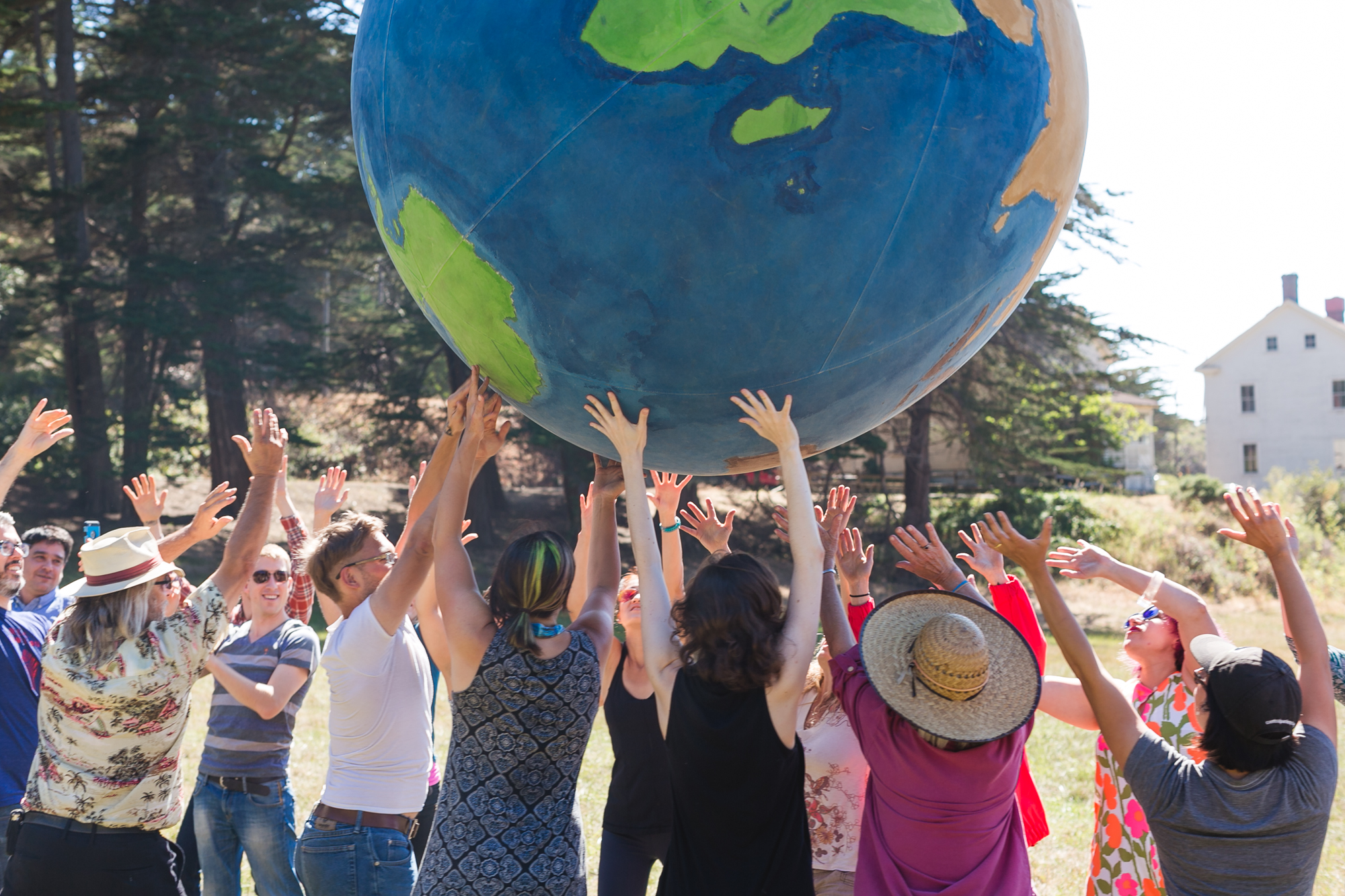
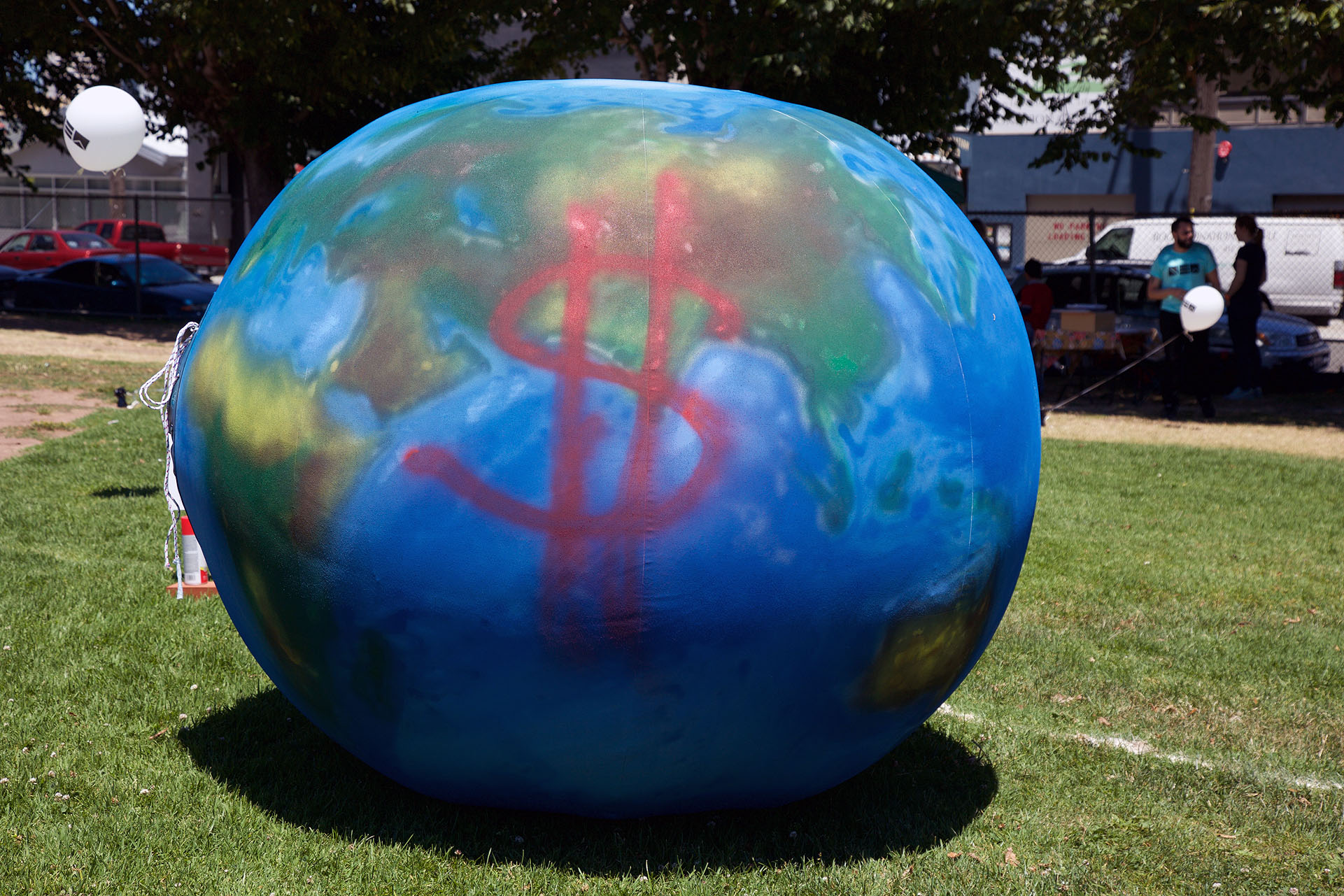
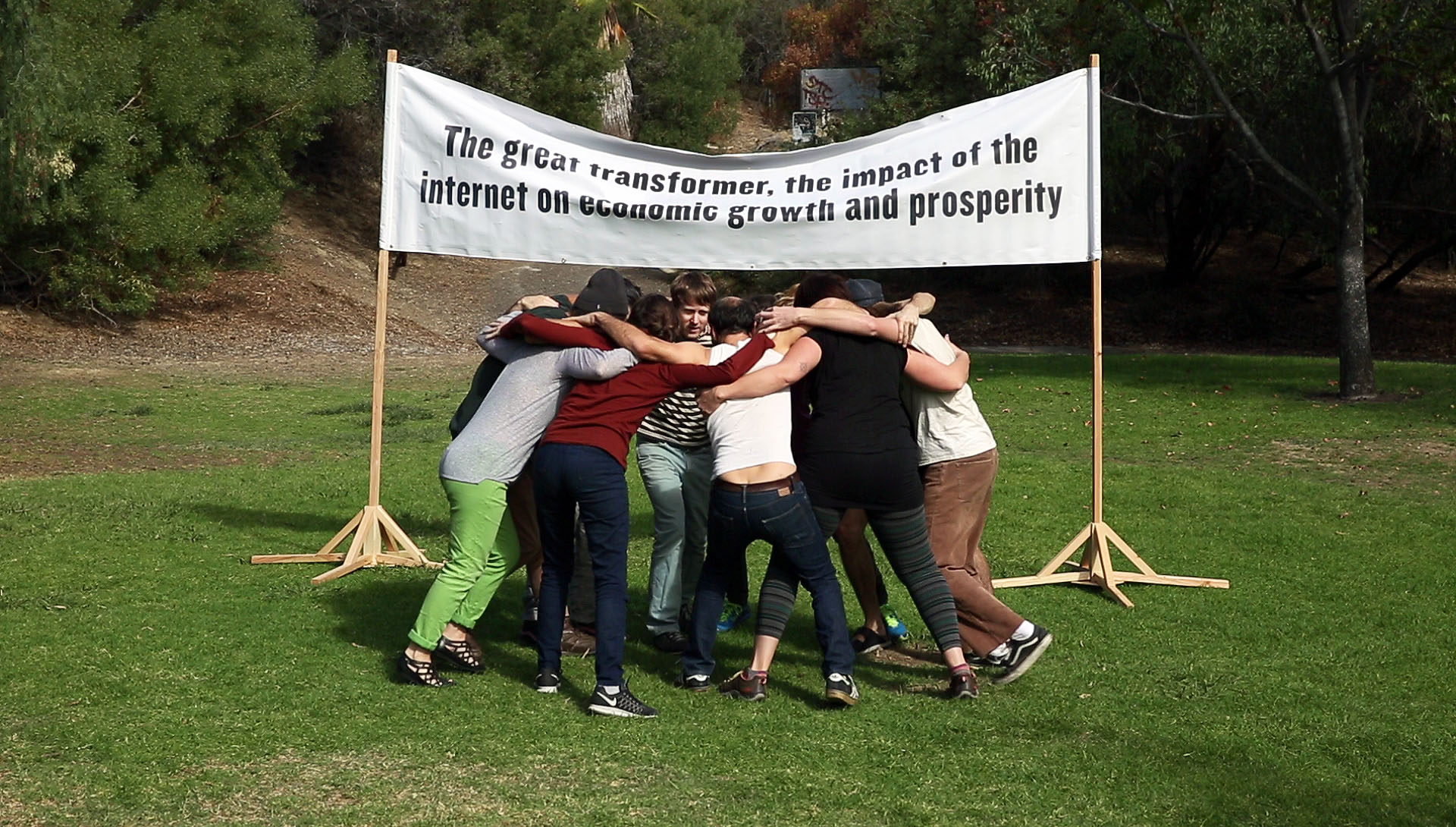
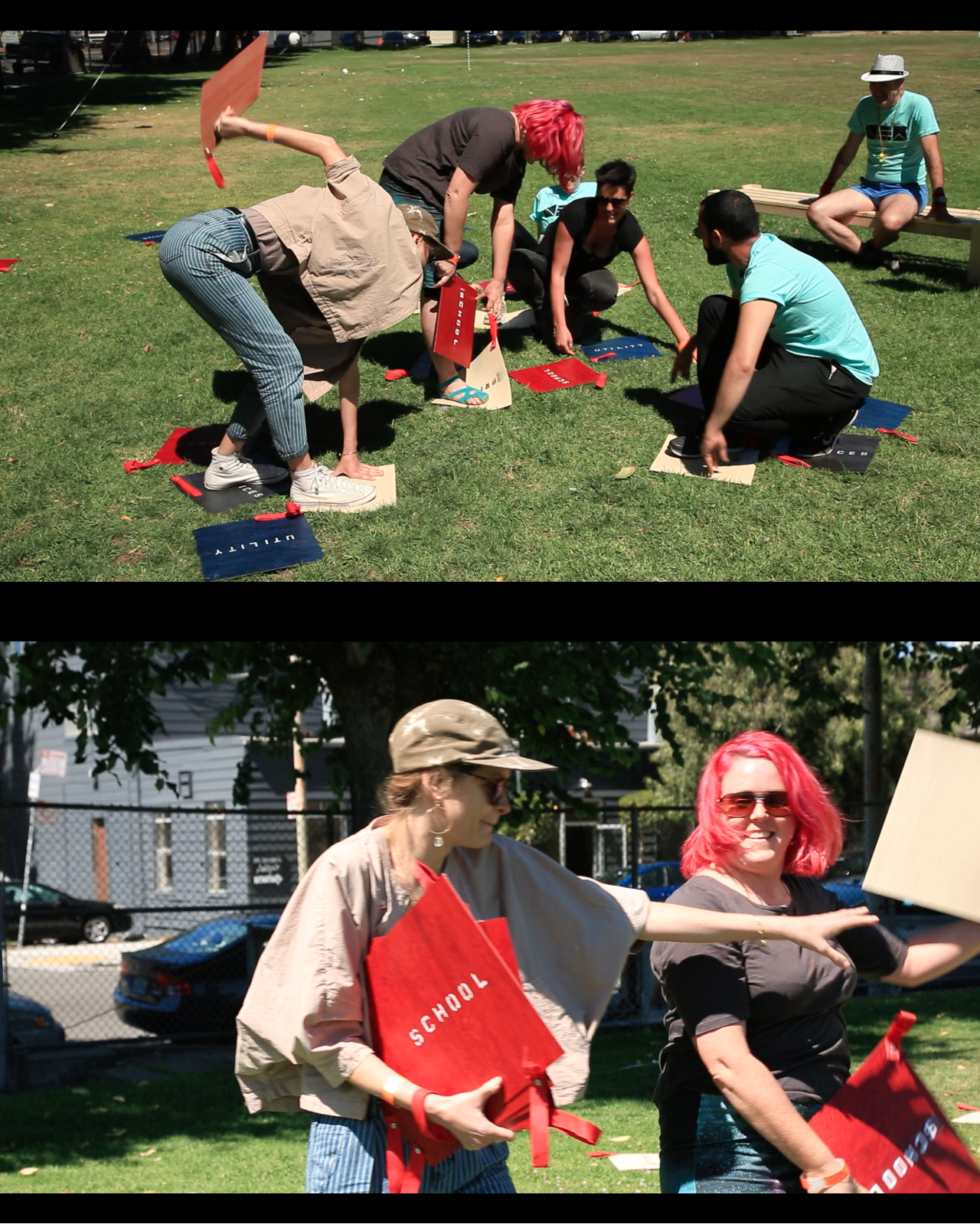
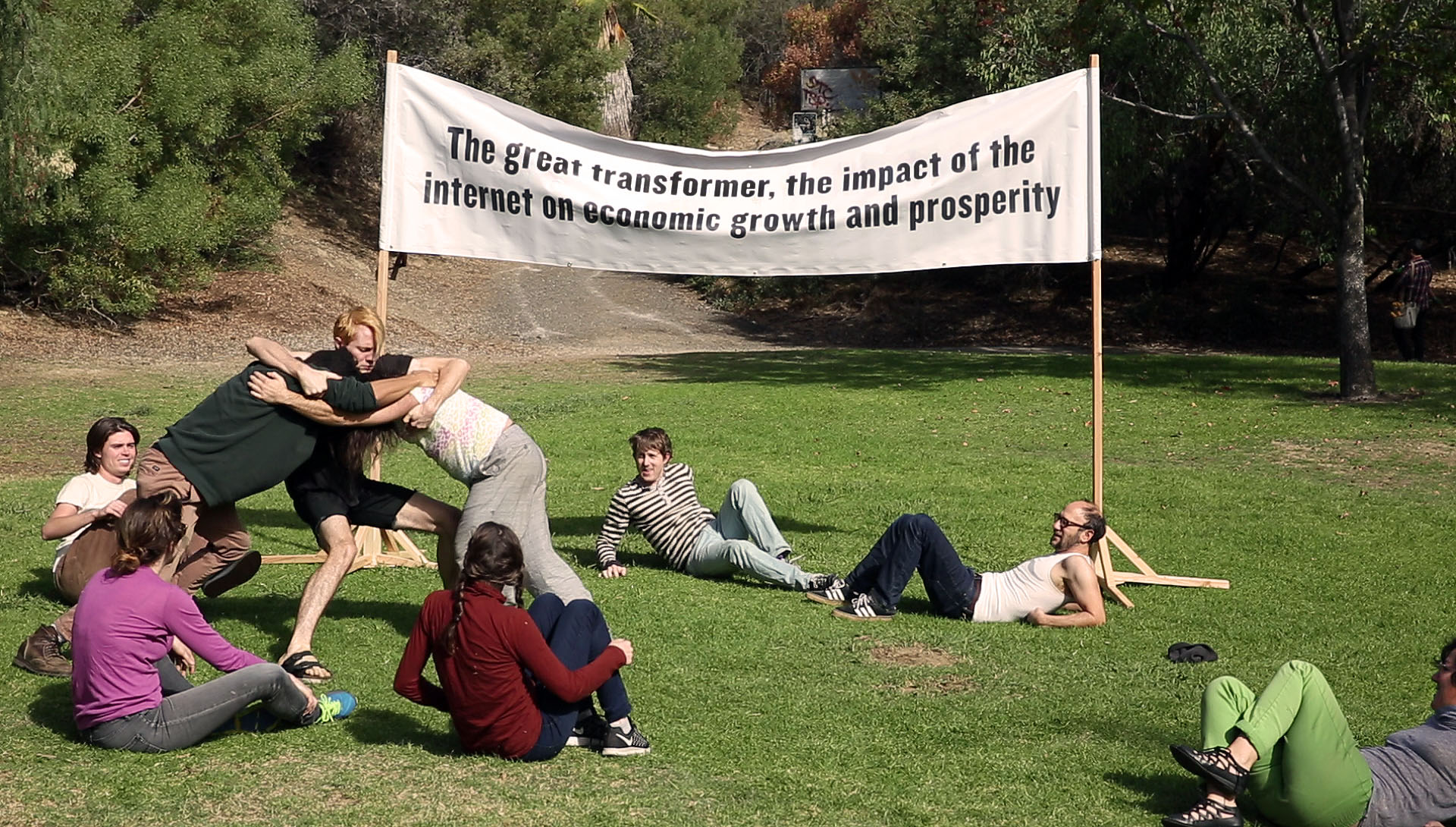

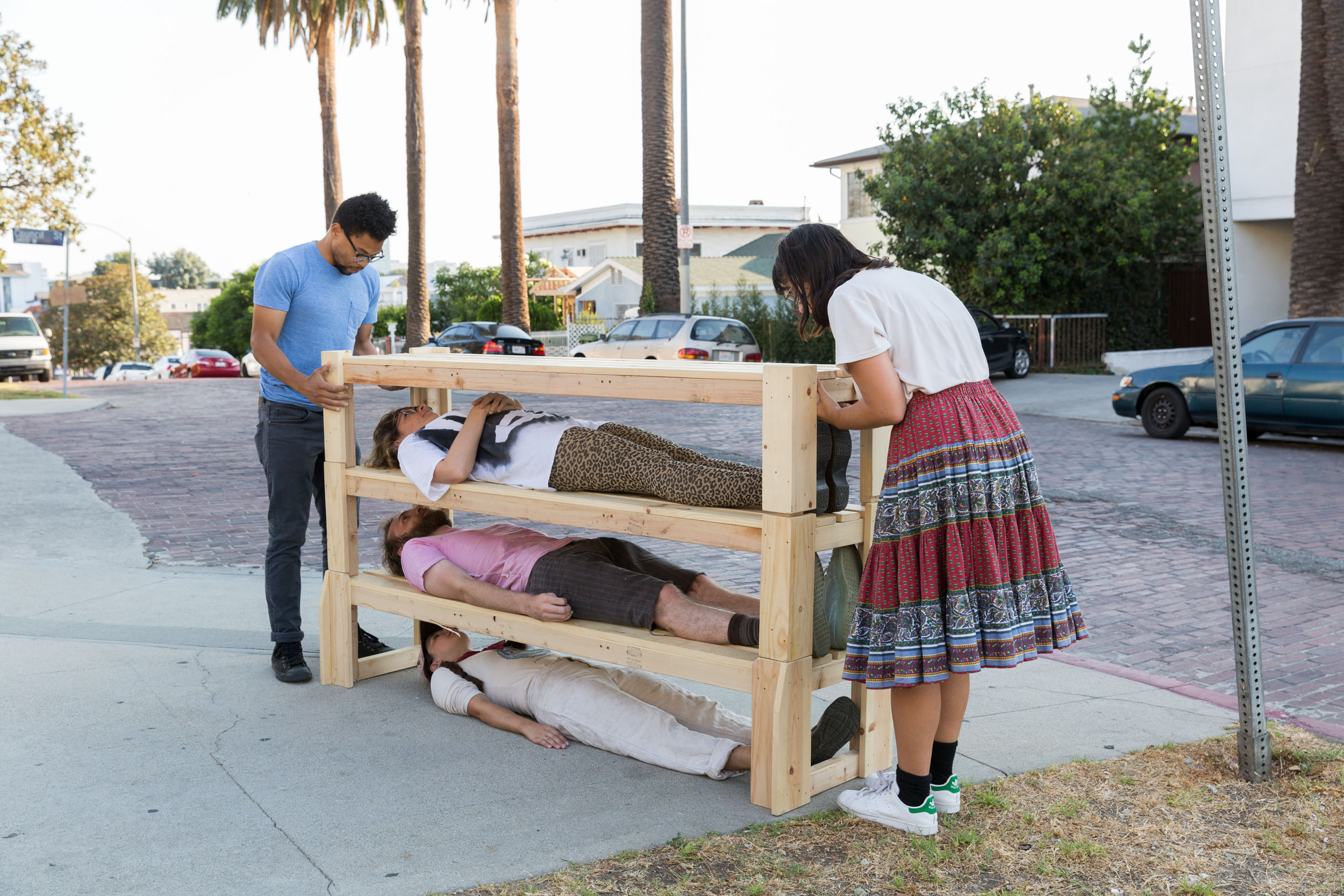
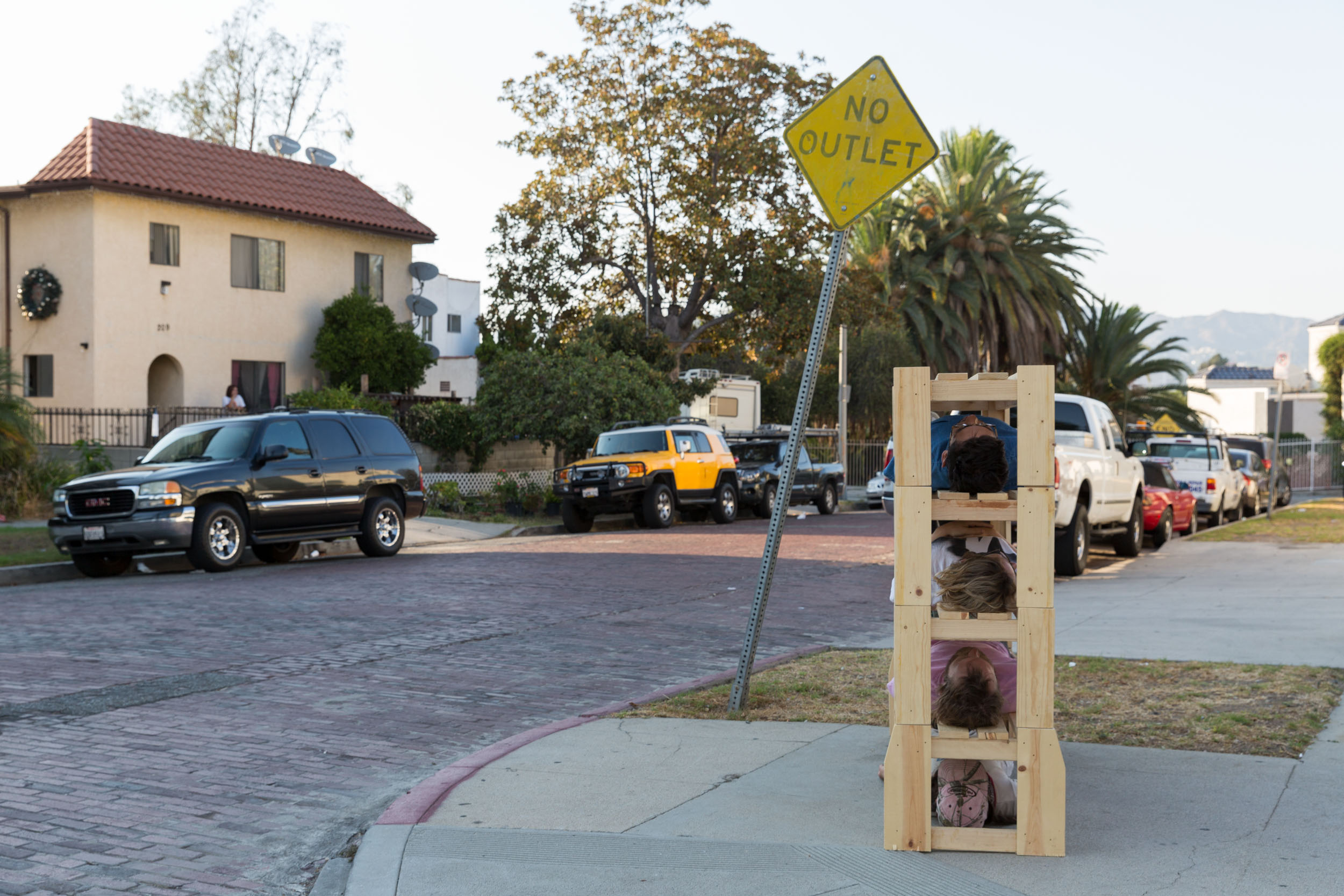
New New Games (2015)
What is the relationship between game-play and the ideologies surrounding creativity and work?New New Games is a participatory artwork by Robby Herbst exploring the democratic and generative New Games spirit and its legacy, sponsored by Southern Exposure, the Graue Foundation, and the Headlands Center For The Arts, It took the form of a publication, a series of public talks, and two distinct play events in the Bay Area. The New New Games website contains a complete archive of the project and pdf of the publication.
New Games Re:Play was a reunion and festival of the original New Games community, developed in collaboration foundational members of the New Games community. It took place on June 26, 2016 at the Headlands Center for the Arts, adjacent to the Gerbode Valley, the site of the original 1973 New Games Tournament.
Watch here.
Warehousing People, developed as a part of New New Games, 2016. Documentation by Ian Byers-Gamber.
In this game, there are two teams. The first are those set to be ware- housed; the second are those doing the warehousing.
If you are a warehouse worker, your job is to organize the warehouse. You will lift and safely stack people into stacking crates. Your job is to try and make the stacks of people as neat as possible.
If you are being warehoused, congratulations. You are surplus. You have two options. One situation will find you transformed into an inmate. You will be stored by the prison industrial complex in a correctional facility not of your choosing. The second situation finds you as an unemployed member of society. You will find your own means of storage, perhaps in a home, although you will find it increasingly difficult to maintain this shelter due to lack of funds.
In either case, your labor has been outsourced thanks to the creative work of engineers and technicians. You may thank your elders (par- ents, grandparents, great grandparents, etc.) for finding themselves in a wage–for–labor relationship, in which you now are not currently needed. There are several rational options for someone in your po- sition to consider. They include suicide, prostitution, madness, cre- ative expression, and entrepreneurialism. Ironically, entrepreneur may be the most socially acceptable term to describe your current condition, because if you got nothing, you best start figuring out how to make it something. Either way, as surplus you’ll spend a lot of time not doing much. For the warehoused, it may simply be your game to endure.
See also: Drawings, Performance, Sculpture
Chats About Change: Critical Conversations on Art and Politics in Los Angeles (2015)
Cal State LA — January 15, 2015Los Angeles Contemporary Exhibitions (LACE) — January 17, 2015
(many details to follow)
Chats About Change: Critical Conversations on Art and Politics is five conversations addressing contemporary themes creative practitioners are developing in Los Angeles today. Organized by artists Elana Mann and Robby Herbst, the conversations will explore ways individuals, at times labeled “artists” and “organizers,” are seeking alternative futures. The event will take place at California State University Los Angeles, “The people’s university,” and at Los Angeles Contemporary Exhibitions (LACE), the innovative contemporary arts institution. Assemblies will be structured around the problematics surrounding participation, creative dissonance, spirituality, professional-hybridization, and the politics of land in a session co-organized with Sandra de la Loza. Chats About Change asks questions, wages debates, and strengthens community among people seeking experimental ways to affect Southern California.
chatsaboutchangela.org
ARTBOUND COVERAGE OF EVENT
Event Preview Article
Event Roundup 1
Event Roundup 2
Event Roundup 3
See also: Race Art & Survival: Michelada Think Tank & Chats About Change
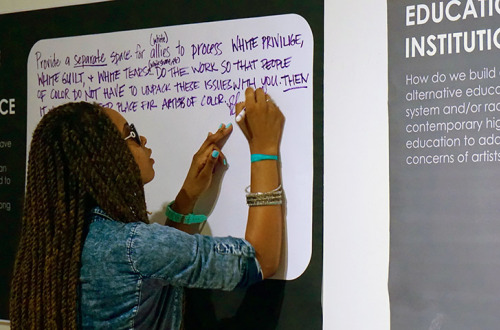
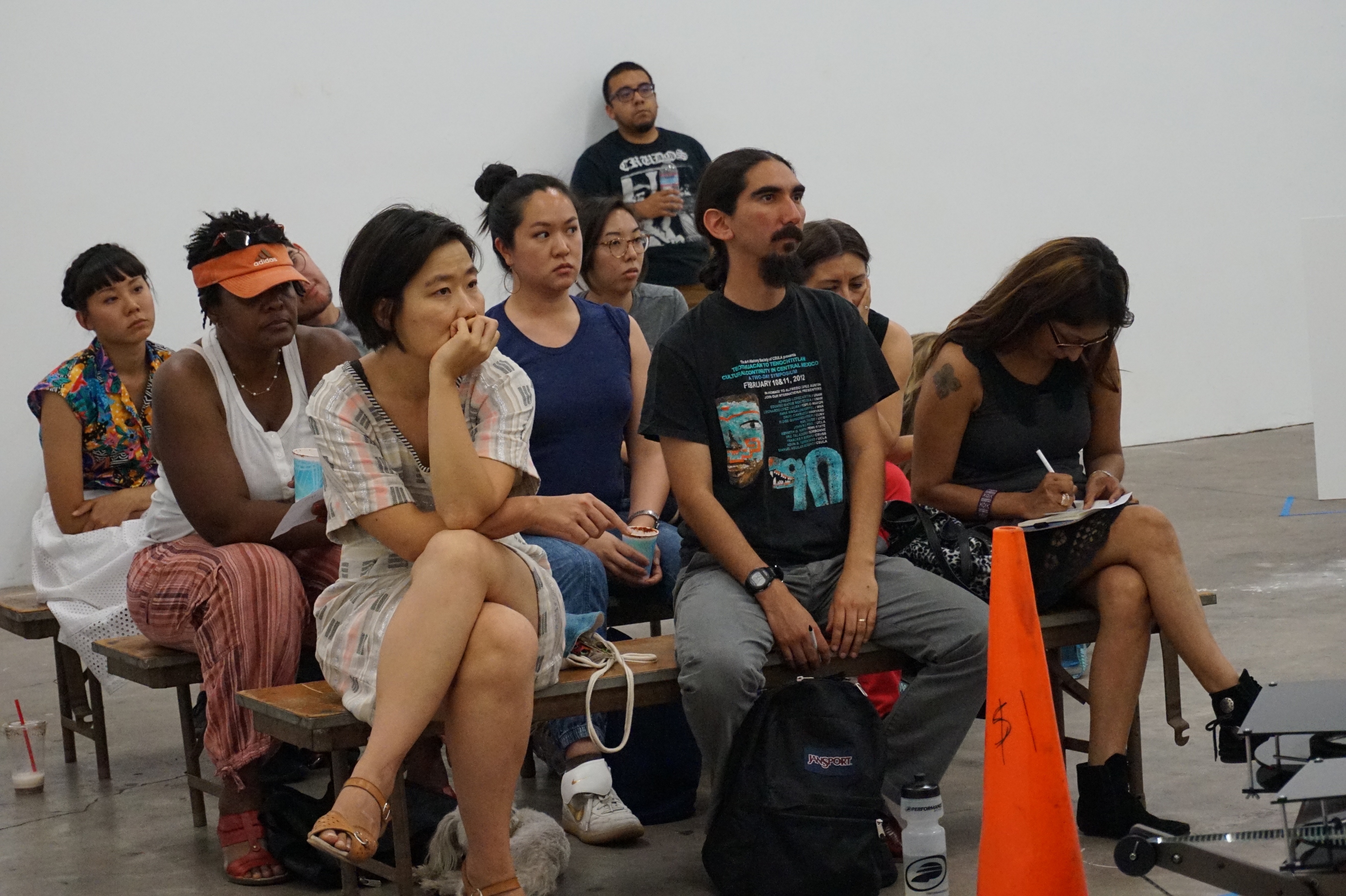
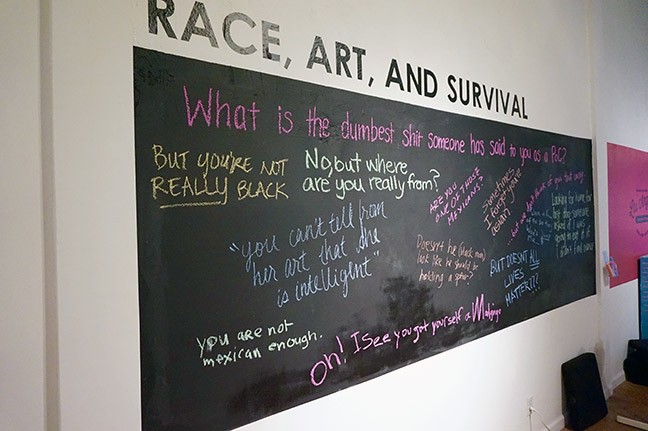
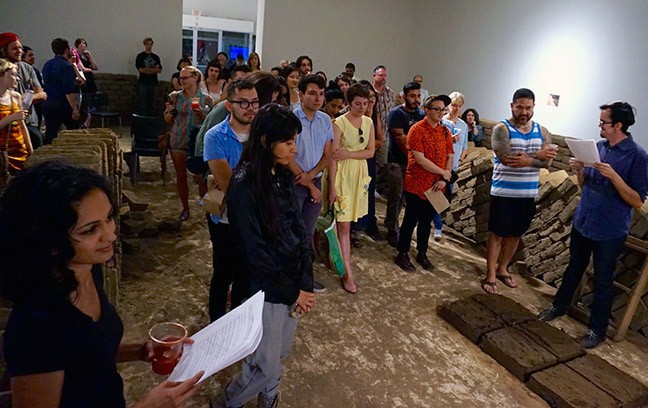
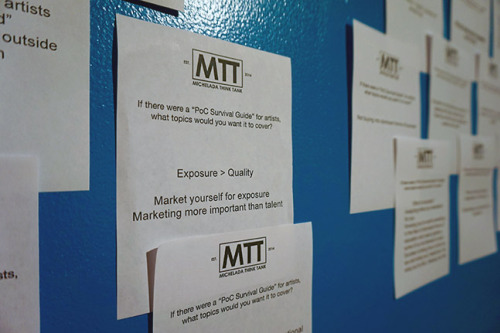

Race Art & Survival: Michelada Think Tank & Chats About Change (2015)
Race, Art & Survival: Michelada Think Tank & Chats About Change, was a series of conversations and residency addressing institutional racism in the artworld.Are we so busy surviving that we forget to be radical?
In the summer of 2015, Chats About Change (Robby Herbst and Elana Mann) organized the Los Angeles Contemporary Exhibitions' (LACE) Project Room with a residency by Michelada Think Tank (MTT), an artist collective organized by Noé Gaytán, Mario Mesquita, Shefali Mistry, and Carol Zou.
MTT inhabited the LACE Project Room with a humorous and critical exploration of survival under a framework of institutional racism in the arts. In a series of weekly think tank sessions (held in cultural spaces throughout Los Angeles), MTT brought people together to talk about survival strategies for artists of color working in a predominantly white art world.
The knowledge generated in these discussions were compiled and published as a “PoC Survival Guide” in LACE’s Project Room. This guide was a tongue-in-cheek look at how artists are impacted by race. If artists of color can come together as a community to make survival easier, we can then begin to foster more radical artistic practices. MTT held think tanks at sites where communities of color were working; some of the sessions were open forums at LACE, while other sessions took place elsewhere.
Race, Art, and Survival – Michelada Think Tank & Chats about Change is a continuation of the Chats About Change series, a project organized by artists Robby Herbst and Elana Mann, which was initiated with a symposium in January of 2015. Chats About Change asks questions, wages debates, and supports artists and activists seeking experimental ways to affect Southern California and beyond.
See also: Chats About Change: Critical Conversations on Art and Politics in Los Angeles
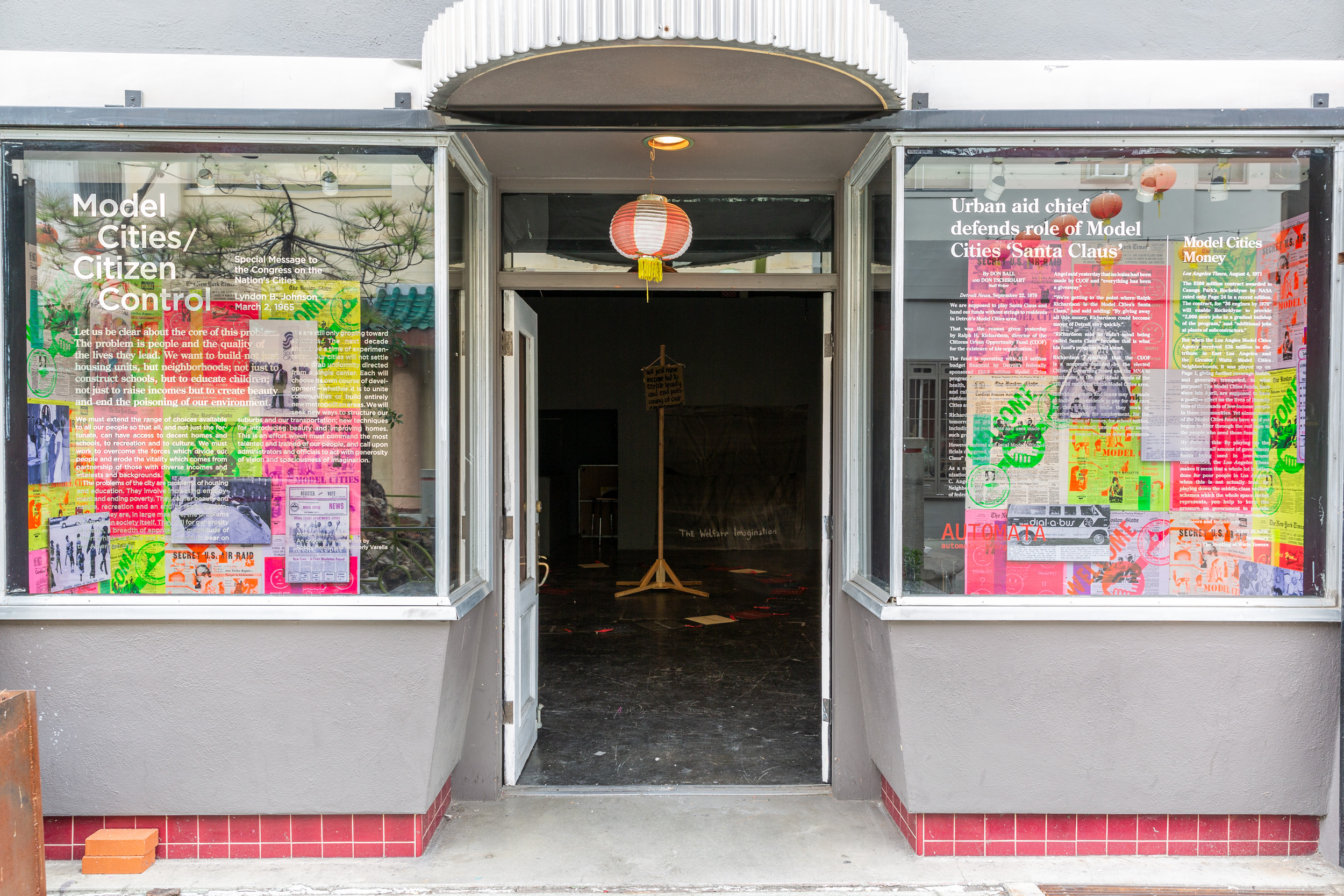
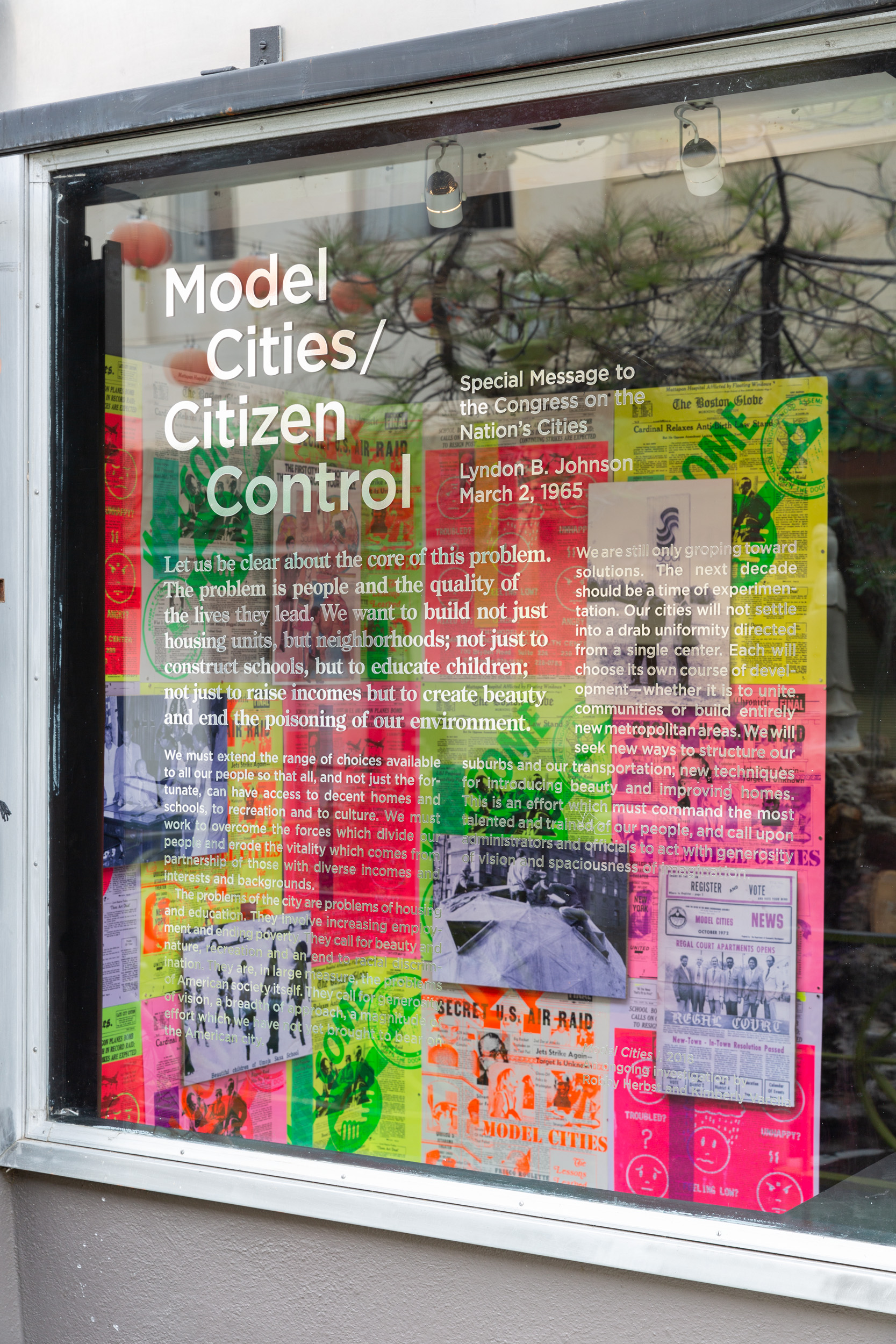
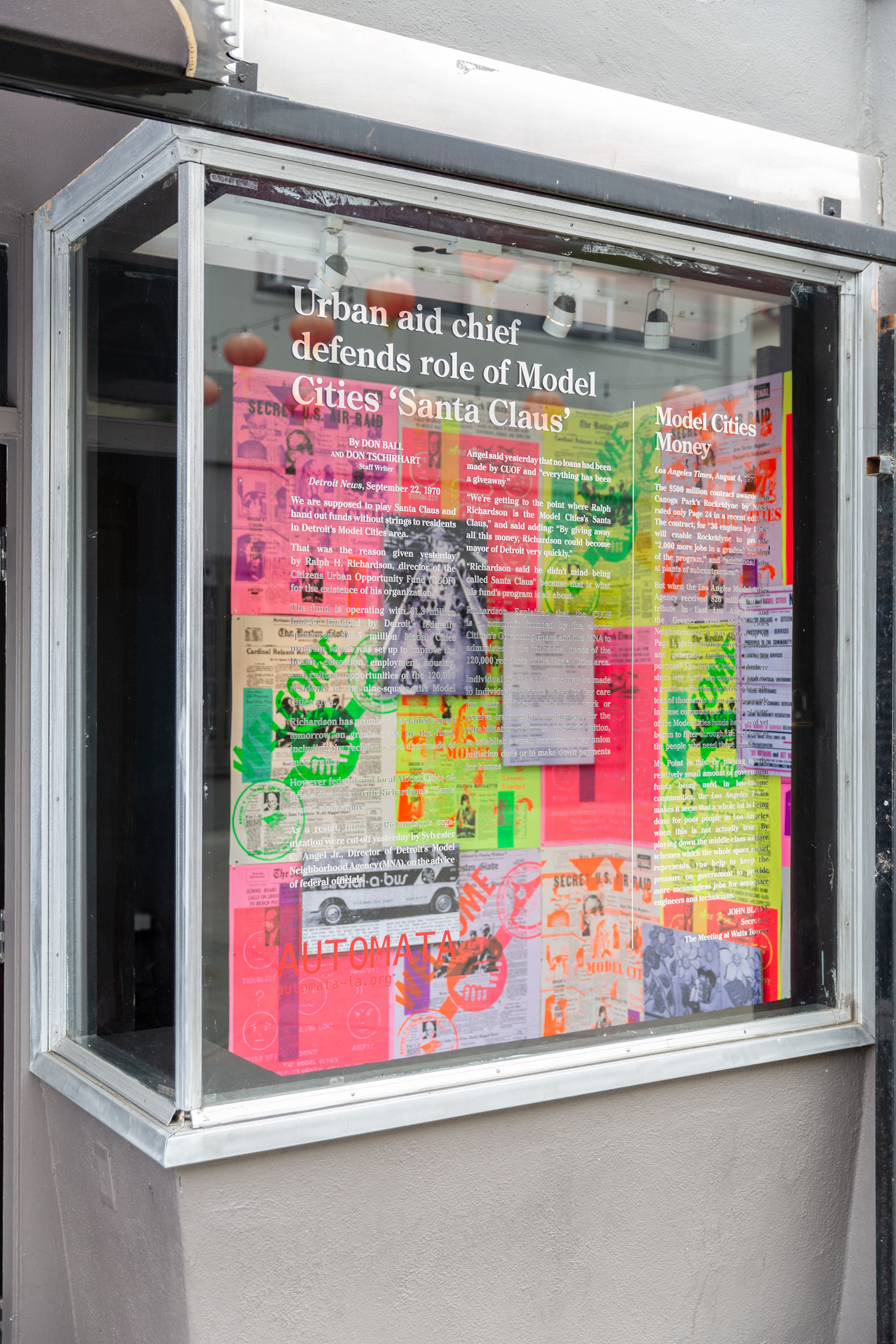
Model Cities/Citizen Control (2019)
Model Cities/Citizen Control was an installation and happening at Automata Arts in Los Angeles by designer Kimberly Varella and artist/ writer Robby Herbst. Using found text and images the installation represents a history of the Great Societies anti-poverty program known as Model Cities (1969 – 1974). The installation reflects on “citizen control” of anti-poverty programs, a goal of Model Cities in its infancy.The Model Cities Programs of LBJ's administration was founded to empower and enrich disenfranchised communities nationwide. It aimed to give direct federal dollars to organize low-income community groups to develop their own community led anti-poverty initiatives. This Great Society Program, which operated between the years 1966 and 1974, grew directly out of the social unrest of the early Civil Rights era.
The program was controversial in its day. Criticism from the right held that it created dependency; squashed entrepreneurialism; and radicalize aggrieved communities. Criticism from the left argued that the program underfunded infrastructure changes; didn't address structural racism adequately; and divided communities against one another. Model Cities/Citizen Control presented theses dialogues - and asked viewers to reconsider their welfare imagination.
Additionally, Citizen Participation/A Model Cities Happening, took place at Automata. The idea of “participation” was as important to the Model Cities program as it was to the art of the happening developed during the same era. The event played with notions of history, participation, and the legacy of the liberal Model Cities program for our reactionary era.
See also: Drawings, Performance/Happenings